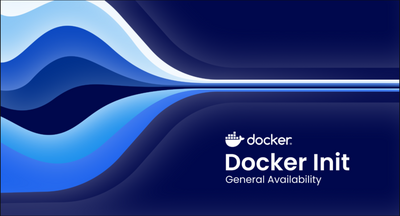The new docker init command, first introduced in a beta version with Docker 4.18, has seen significant improvements. This command-line tool helps with the setup of Docker resources for a project by auto-generating Dockerfiles, Compose files, and .dockerignore files, for the project's specifics. This helps streamline the often complex and time-consuming process of configuring Docker environments.
Originally, the beta release of docker init provided support solely for Go and generic projects. However, as of Docker Desktop 4.27, the utility has expanded its support to include a broader range of programming languages and frameworks, such as Go, Python, Node.js, Rust, ASP.NET, PHP, and Java.
Using docker init
The process of using docker init is designed to be user-friendly, requiring only a few steps. Users begin by navigating to their project's directory and executing the command:
docker init
This action activates the tool, enabling it to assess the project and offer a suitable template for the Docker setup.
The tool then proceeds to analyze the project, prompting the user to select the most appropriate template for their application. Following template selection, docker init gathers specific project details, leading to the automatic creation of Docker resources tailored to the project’s needs.
This automation extends to generating a Dockerfile and a Compose file that match the project's language and framework, among other necessary files, thereby preparing the project for Docker Compose execution.
Docker init demystifies the dockerization process, making it more approachable for Docker novices while saving experienced users time. By avoiding manual configuration of Dockerfiles and other Docker-related files, it minimizes the risk of errors. The tool's template-based methodology ensures Docker setups are optimized for the application at hand, aligning with industry best practices.
The full release of docker init is a significant advancement in streamlining Docker integration within projects. It promises to improve the development workflow for both new and experienced Docker users, emphasizing efficiency and best practice adherence in dockerization processes.
https://www.docker.com/blog/streamline-dockerization-with-docker-init-ga/


